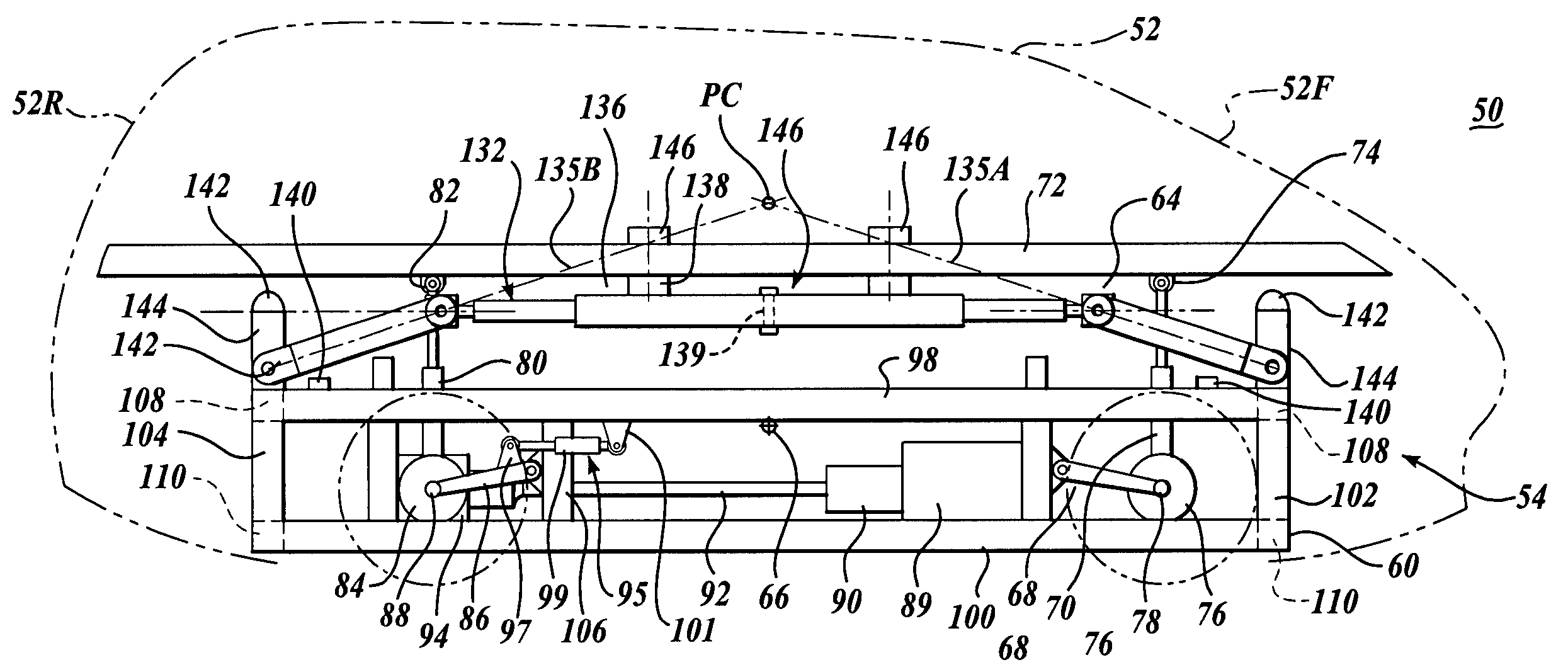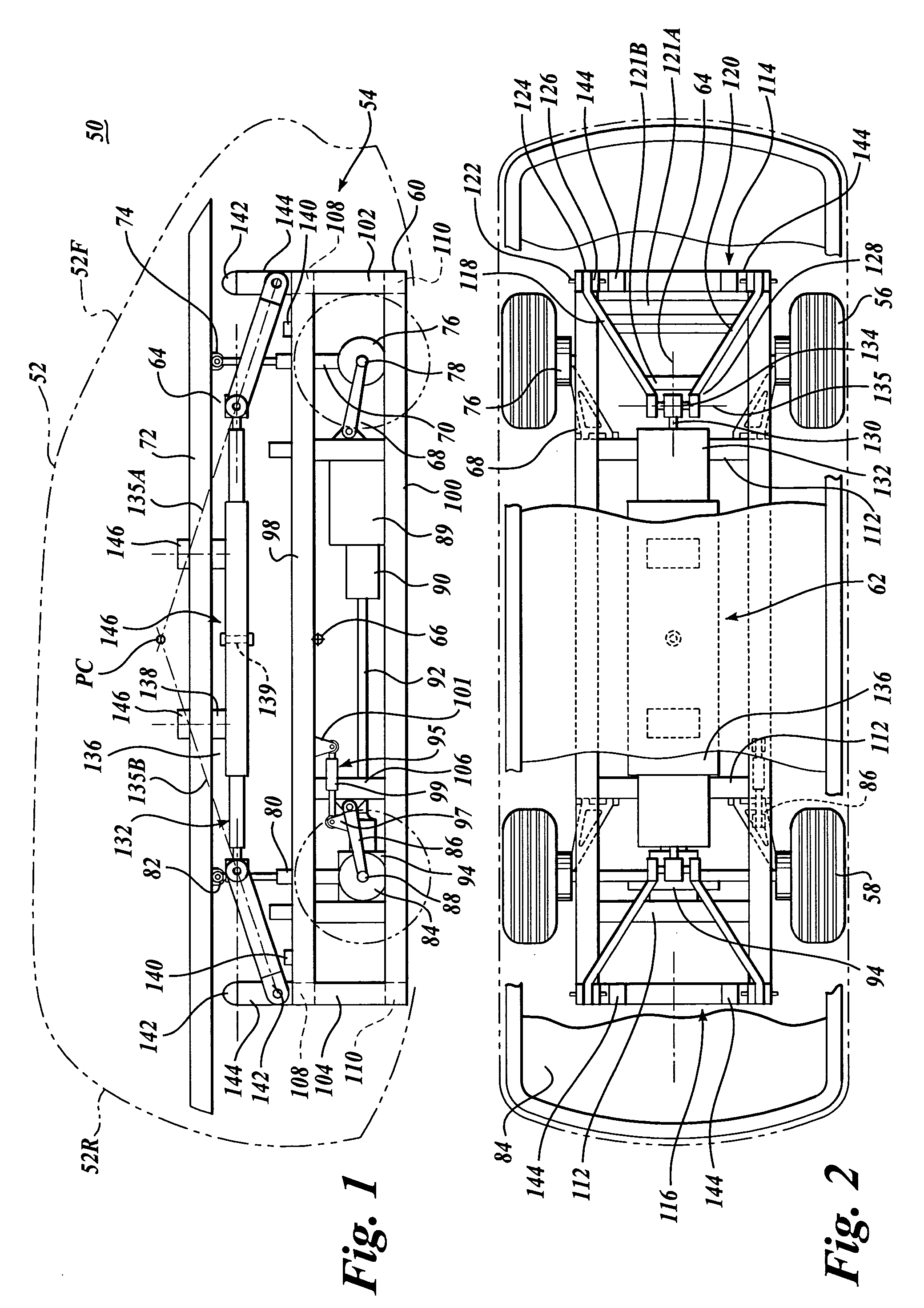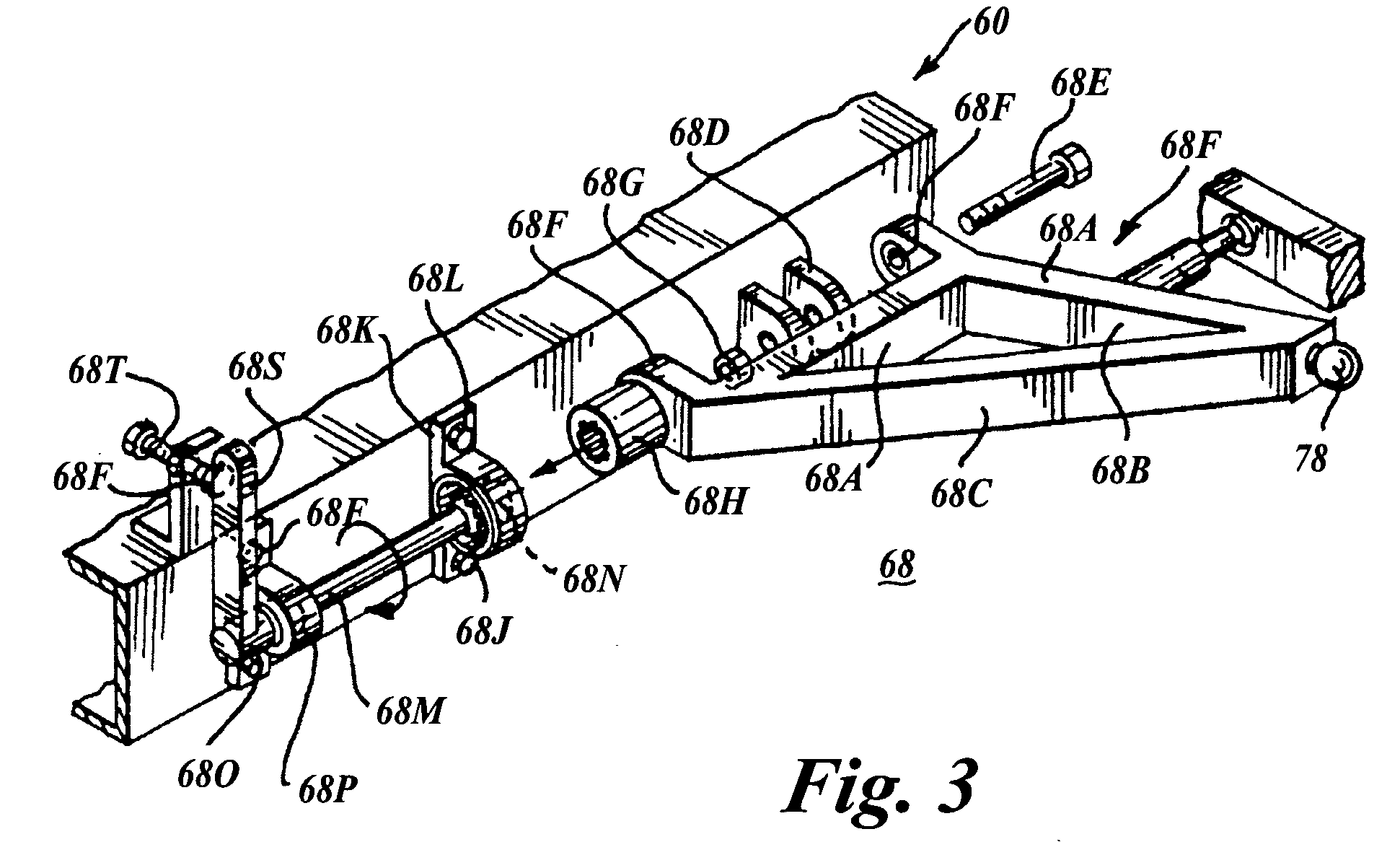Vehicle with movable and inwardly tilting safety body
a safety body and vehicle technology, applied in the direction of bumpers, pedestrian/occupant safety arrangements, tractors, etc., can solve the problems of reducing the maximum braking capacity of the vehicle, and affecting the traction of one or more wheels. , to achieve the effect of reducing the jacking effect and/or the pitching effect of the vehicl
- Summary
- Abstract
- Description
- Claims
- Application Information
AI Technical Summary
Benefits of technology
Problems solved by technology
Method used
Image
Examples
Embodiment Construction
[0072] Referring initially to FIGS. 1 and 2, a vehicle 50 having a body 52 is shown as mounted on the suspension system 54 of the present invention, which in turn is supported on forward wheel assemblies 56 and rearward wheel assemblies 58. An elongated tie structure 60 is interposed between the vehicle body 52 and the wheel assemblies 56 and 58. The tie structure 60 may extend longitudinally along the lower elevation of the vehicle 50 and is interconnected to the body 52 through a slide assembly 62 to enable the body to slide longitudinally relative to the tie structure as well as pivot about a longitudinal axis 64 which is located at an elevation above the center of gravity 66 of the vehicle 50. The tie structure 60 is also connected to the wheels 56 and 58 by pivot arm assembles 68.
[0073] As used in the present application, the term “body” is intended to include a relatively rigid structure that may include a chassis, frame and / or the body thereof, and any additional supports an...
PUM
 Login to View More
Login to View More Abstract
Description
Claims
Application Information
 Login to View More
Login to View More - R&D
- Intellectual Property
- Life Sciences
- Materials
- Tech Scout
- Unparalleled Data Quality
- Higher Quality Content
- 60% Fewer Hallucinations
Browse by: Latest US Patents, China's latest patents, Technical Efficacy Thesaurus, Application Domain, Technology Topic, Popular Technical Reports.
© 2025 PatSnap. All rights reserved.Legal|Privacy policy|Modern Slavery Act Transparency Statement|Sitemap|About US| Contact US: help@patsnap.com



